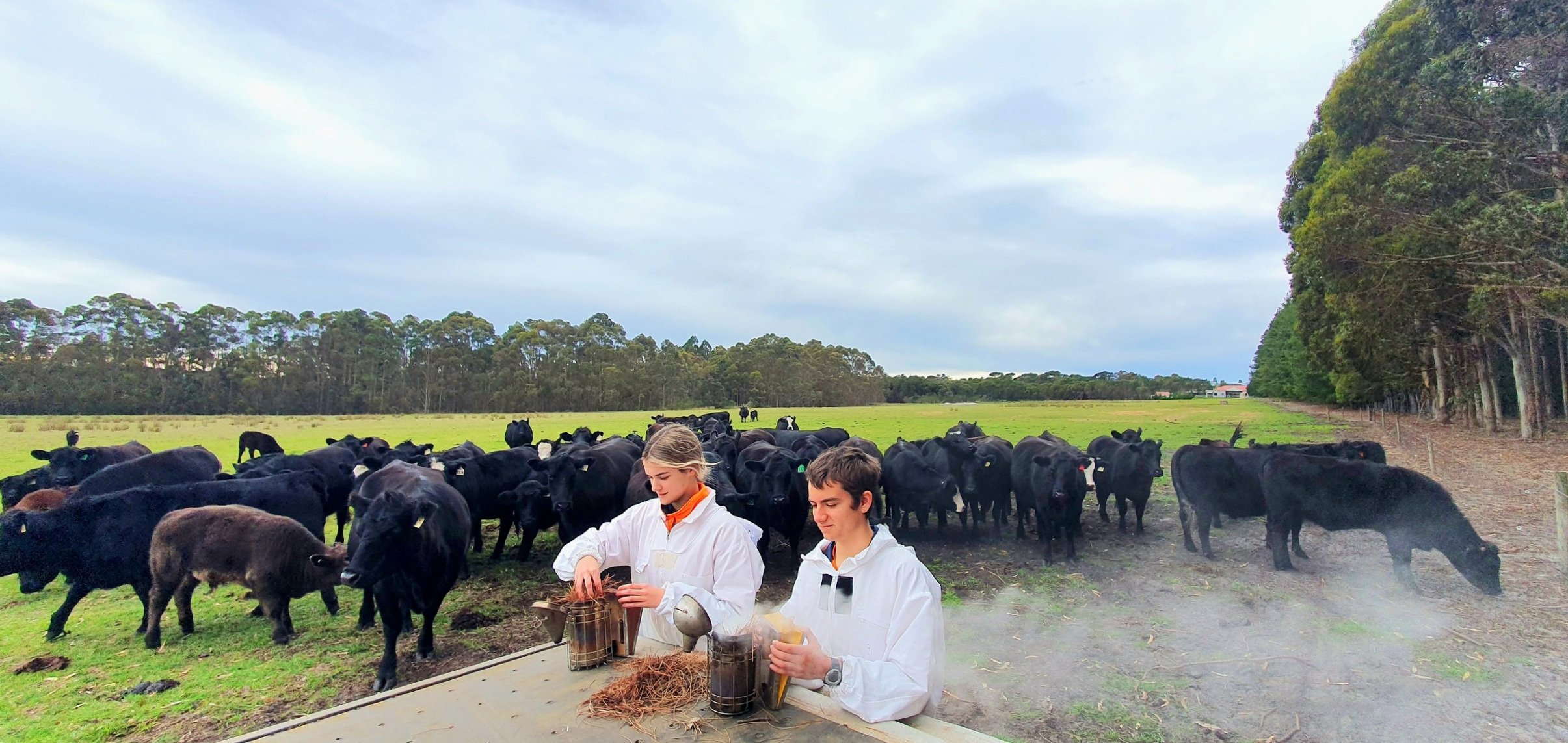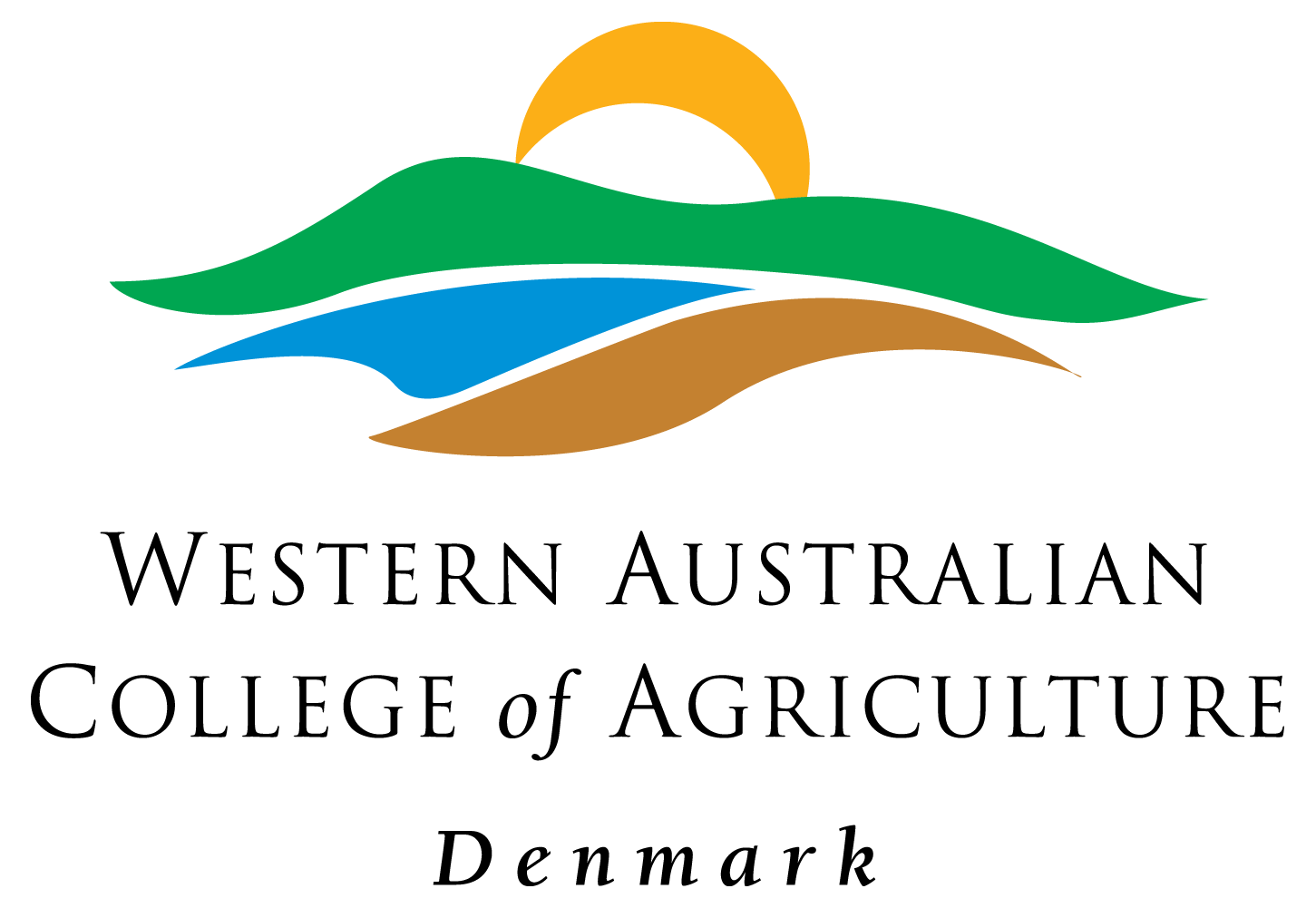
Vocational Education & Training (VET)
A vocational program gives students the chance to gain skills and competence in their future career while still at school.
These qualifications are designed to assist students in their transition to a broad range of post school options and career pathways.
All VET programs include elements of work related learning that may involve partnerships with training providers, businesses, industry and the wider community.
As a Registered Training Organisation (RTO), WACOA Denmark is responsible for the delivery of the training and assessment in compliance with Australian Quality Framework (AQF) Standards of delivery and assessment.
-

AHC20122 Certificate II in Agriculture
Our Certificate II in Agriculture provides a general introduction to agriculture skills and techniques.
The qualification enables individuals to select a livestock production, cropping or livestock context as a job focus or, in the case of mixed farming enterprises, both cropping and livestock.
Industry expects individuals with this qualification to carry out routine tasks, in an agriculture context, under general supervision and exercise limited autonomy with some accountability for their work.
-

MEM20422 Certificate II in Engineering Pathways
This qualification is suited to students looking to gain entry level employment in the engineering industry. Students will gain practical skills and knowledge to complete basic welding and fabrication tasks, and will learn how to use tools, safety in the workplace, measuring, calculating and welding.
The qualification requires students to base their course around one or more engineering projects. The focus is on using engineering tools and equipment to produce or modify objects by welding, machining, shaping and forming metals and associated materials.
-

AUR20720 Certificate II in Automotive Vocational Preparation
This course gives students a thorough understanding of mechanical systems and low voltage electrical circuits. Component identification and fundamental tool/hand skills are developed and practiced in a fully equipped workshop and training centre.
Students gain an array of foundation skills that support applications for further training as well as life-long skills and knowledge that can be applied throughout life. Students develop these skills and knowledge by working on a range of vehicles, agricultural equipment, motorcycles, quad bikes, stationary engines and transmissions.
-

ACM20221 Certificate II in Horse Care
This qualification describes the skills and knowledge required for entry level horse care workers that are required to handle horses. They may also ride horses.
Individuals in these roles perform routine horse care tasks under supervision including stable cleaning, horse handling, feeding, grooming, gear fitting and exercising.
They apply solutions to a range of predictable problems and collaborate with others to care for horses and horse environments.
-

AHC21425 Certificate II in Wool Handling
This qualification provides an entry level occupational outcome in wool handling. The wool industry expects individuals with this qualification to carry out routine wool handling tasks under general supervision and exercise limited autonomy with some accountability for their own work.
This nationally recognised qualification will teach students how to pen sheep, perform board duties, carry out wool pressing, and assist your supervisor to prepare sheep for shearing and crutching. Students will also be introduced to the animal welfare and workplace safety protocols that protect both students and the sheep.
-
AHCSS00075 Basic Beekeeping Skill Set
Our beekeeping students learn how to carry out basic beekeeping tasks such as; light and operate a bee smoker, safely open beehives and build, maintain and restore beekeeping equipment. Our students extract & package honey and explore the enterprise opportunities of beekeeping by marketing honey and turning beeswax into saleable products.

